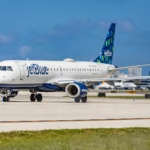The aviation industry was struck with two years of disruption due to the pandemic. This year, as airlines begin to recover from the unstable previous two years, the issue of staff shortages has plagued the industry. A problem they should have seen coming? Maybe, maybe not. Regardless, it took the industry by surprise. And at a time when passenger traffic increased at an incredible rate, airlines simply could not keep up.
All across the globe, airlines were struggling with delays and cancellations due to not having enough staff to manage the increase in demand. Experiencing disruption at the airport was almost a given and check-in queues even extended outside of airports into car parks.
Staffing issues arose after airlines were forced to carry out retrenchment and early retirement packages to save costs and not lose so much over the dormant period. But now that demand has recovered beyond expected, airlines have been focused on rehiring as quickly as possible.
Two of Britain’s biggest carriers – British Airways and Virgin Atlantic – have taken note of the urgency of the situation.
By opening their pilot recruitment schemes for 2023 onwards, it is assumed that one key aspect of air travel will not suffer from any extreme staffing issues.
British Airways
Britain’s national carrier has opened its Cadet Programme in the hopes of attracting more pilots. Currently, there’s an open role for a direct entry role for a First Officer for British Airways.
Those interested are required to hold a current type rating with a minimum of 500 hours or 100 sectors on a Zero Flight Time qualifying aircraft.
According to British Airways, its short-haul fleet (particularly the Airbus A320, of which the carrier owns a total of 76 across the series) is its primary goal for recruitment.
British Airways is also gearing up its recruitment to fill up spots for its low-cost subsidiary – BA Euroflyer – also for the direct entry First Officer role. The requirements are the same too, and the aircraft preference is the Airbus A320.
In their first year, the lucky candidates that are chosen by BA are expected to earn approximately £65,000. They’ll also get to join the British Airways master seniority list. The list allows them to move to BA’s Heathrow base for a widebody aircraft or a different short-haul fleet, increasing their opportunities.

Virgin Atlantic
Virgin Atlantic is also looking for First Officers during their recruitment drive. However, they prefer pilots to fly across their Airbus and Boeing fleets – this is the first time they have opened up recruitment across its fleets since 2020.
The carrier anticipates that it will need a further 100 pilots by Summer 2030, a further 60 by Summer 2024, and an additional 40 by Summer 2025.
Demand has also increased across the carrier’s services as they increased (and continue to increase) their capacity across its route network.
The Crawley-based carrier is also looking to gradually increase its fleet as it awaits the remaining 13 deliveries of the Airbus A330-900 NEO aircraft between 2023 and 2026. The carrier has already welcomed three of the A330-900 NEO.

Gearing up for recruitment now is a wise investment in the future.
Interested individuals are expected to have a minimum of 1,500 flight hours of experience on either type rating, and at least 500 flight hours on the current type – hours you may have flown as a cruise pilot are not included.
Virgin Atlantic also expects interested candidates to have at least flown the aircraft type within the last 6 months and achieved at least 200 flying hours within the previous two months.
Estelle Hollingsworth is the Chief People Officer at Virgin Atlantic:
“At Virgin Atlantic, our purpose is to inspire everyone to take on the world, championing inclusivity, and our challenger spirit. Ensuring our Pilot community is made up of diverse backgrounds, remains a core priority for us and we welcome anyone with a genuine passion for aviation to apply for these exciting positions.”
Recruiting to keep air travel going
Recruitment drives are key to keeping all industries going, not just air travel. But in recent months, it has become clear how necessary injection of new faces was needed to grab a handle on the high number of travellers.
At the end of the day, staff shortages across the industry have allowed hundreds of individuals to suffer from stressful – and in some cases upsetting – experiences while attempting to travel. The ultimate goal of all airlines and airports is ensuring that their passengers enjoy a positive experience all around and, if the worse occurs, their rights are protected and enforced.
Unfortunately, in an attempt to keep air travel going, that has not always been the case.

Hopefully, the remainder of the summer season and the rest of 2022 does not see the levels of chaos we’ve witnessed.
Have you been affected by staff shortages this year? Share your experiences with us in the comments below.









